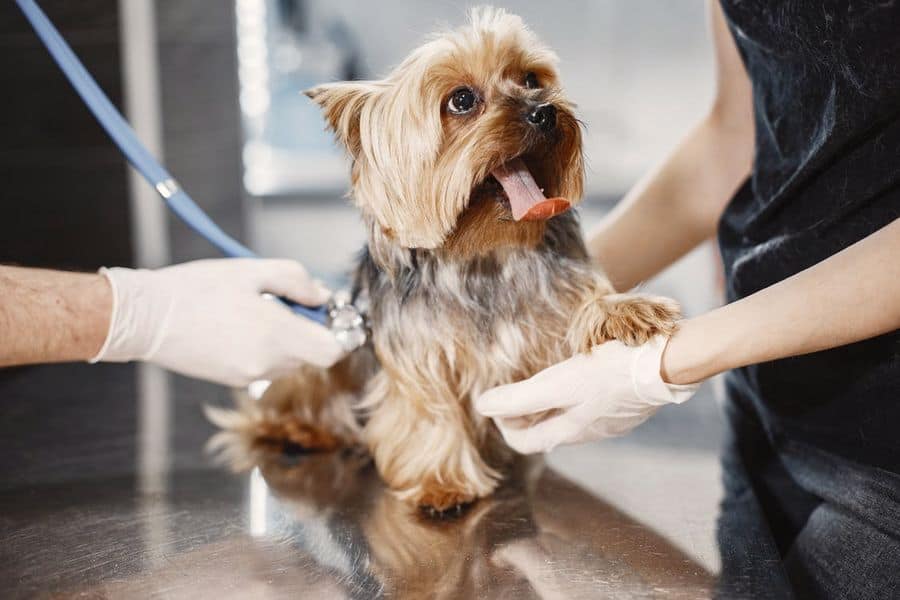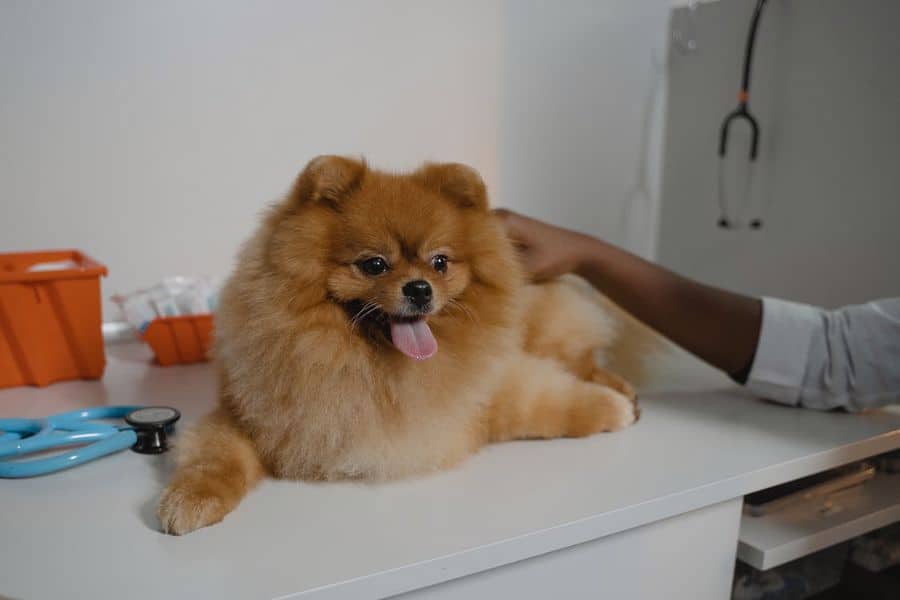Blocked anal glands are a dog-related health condition that can be quite uncomfortable. They make it extremely painful for your dog to pass poop. However, these anal glands can be expressed to make the dog comfortable. Keep reading to learn the different noticeable signs that will help you with how to tell if a dog needs its gland expressed.
Contents
How to Tell if a Dog Needs Their Glands Expressed
A dog’s anal glands are located on both sides of its anus. These glands have a sac called the glands sac. The gland sacs are there to store a distinct smelling secretion produced by the anal glands. Every time a dog poops, some of this distinct-smelling secretion is released.
The gland sac is commonly the size of a bean. They tend to swell and feel very hard when filled. There are cases where the glands are not fully emptied, in such cases, they can become impacted and painful for the dog. The most common signs of this to look out for are:
Unpleasant Odor
If your puppy’s anal glands become full they may start to leak. One common factor with this leak is a very unpleasant smell. This smell is mostly worse than your dog’s poop and is easily noticeable. You should check its glands once you notice this.
Staining
Another common sign is staining. If you notice colored stains with an awful after-smell in places where your dog lies down or sits, this might be an indication of impacted glands. In some cases you might notice blood, however, this only happens when the gland bursts.
Constant Biting
Impacted glands are mostly uncomfortable for dogs. As a result of this discomfort, they tend to continuously lick or bite their behind trying to express the glands. If your dog won’t stop biting or licking its behind, you should check its glands.
In some cases, you might notice your dog dragging its behind on the ground or scooting. It’s their way of trying to express their anal glands.
Difficulty Pooping
In extreme cases where the glands have become very swollen and painful, your dog might find it difficult to stool. They might also be unwilling to due to the pain. Most dogs are also protective of their rear side when this happens. If you notice this, check your dog immediately if he’s showing signs of constipation.
Common Reasons Why a Dog’s Glands Become Impacted
There are several reasons why a dog’s gland can become impacted and painful. These causes can either be natural or external. They include:
- Diarrhea: A dog’s stool should normally be strong enough to naturally express the glands while passing. Loose stools are unable to do this and can cause a build-up of fluid in the gland sac.
- Glands Positioning: Some dog breeds are born with their anal glands naturally out of place. In this case, they would require external help to express their glands.
- Allergies: Adverse reactions to food or drugs can cause your furry friend’s glands to become impacted. Especially if it’s a dog experiencing inflammatory and allergy issues.
- Weight: Obesity has also been identified as one of the causes of impacted glands in dogs.
You should always seek our professional opinion as an impacted gland sometimes might occur as a result of other health complications.
To control and prevent external causes, try to include fiber supplements in your dog’s regular meals. You should also feed them high-quality dog food to ensure their stool is firm.
How to Express a Dog’s Glands
Once you have confirmed that your dog’s glands are impacted, the next step would be to express its glands. It is advisable to consult me before proceeding. Not only can I fully express your pet’s glands, but I can also determine their overall health status.
If the glands discharge is discolored or you notice pus or blood, you should contact me. It could be a sign of more than impacted glands.
In some cases, I might prescribe anesthetic or sedatives for this procedure. This depends on how painful the procedure is for your dog. I might also prescribe anti-inflammatories or antibiotics, depending on the situation.
Why Should Impacted Anal Glands Be Emptied?
If a dog’s impacted glands are not emptied fast enough, it can lead to other serious health complications. Aside from the pain and discomfort associated with this, the dog is also at risk of catching an infection.
Although it is important for a dog to have its glands expressed, it should also not become a regular thing. I am in the best position to determine when and how often a dog’s glands should be expressed. This can often vary according to a dog’s breed, size, and overall health condition.
You should contact our clinic or facility as soon as you notice signs of discomfort in your dog. These symptoms might sometimes appear as a result of other health issues such as a tapeworm infection or cancer.
Conclusion
How to tell if dog glands need to be expressed is easily identifiable once you become aware of the signs to look out for. However, it is not advisable to medicate or express your dog’s glands yourself. Always consult our veterinary clinic for accurate and proper information on how to proceed. Regular checkups with our clinic can also help in preventing any complications.



